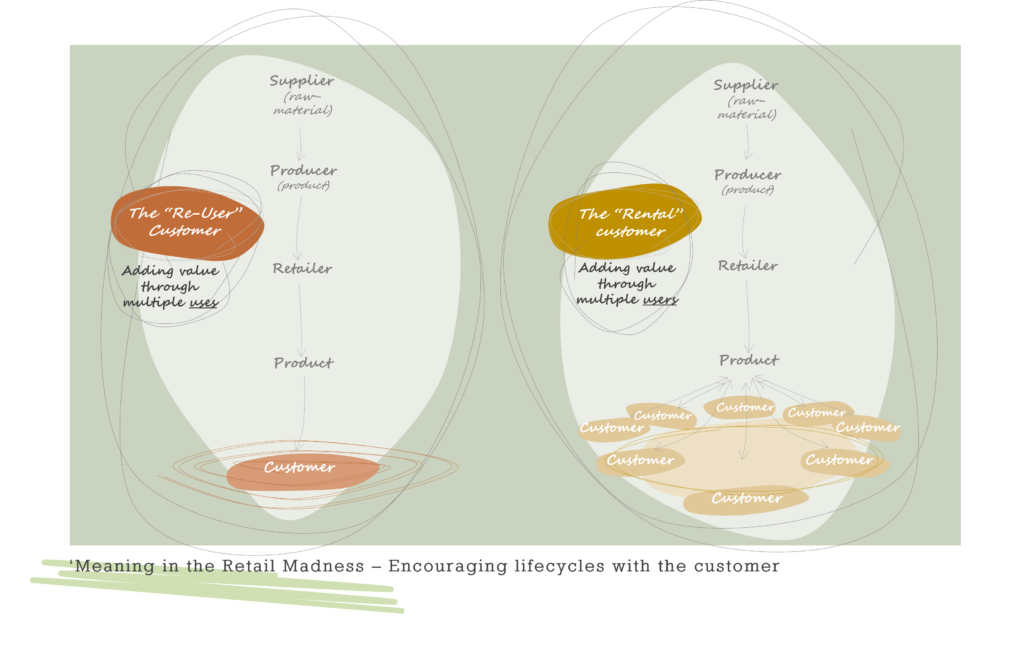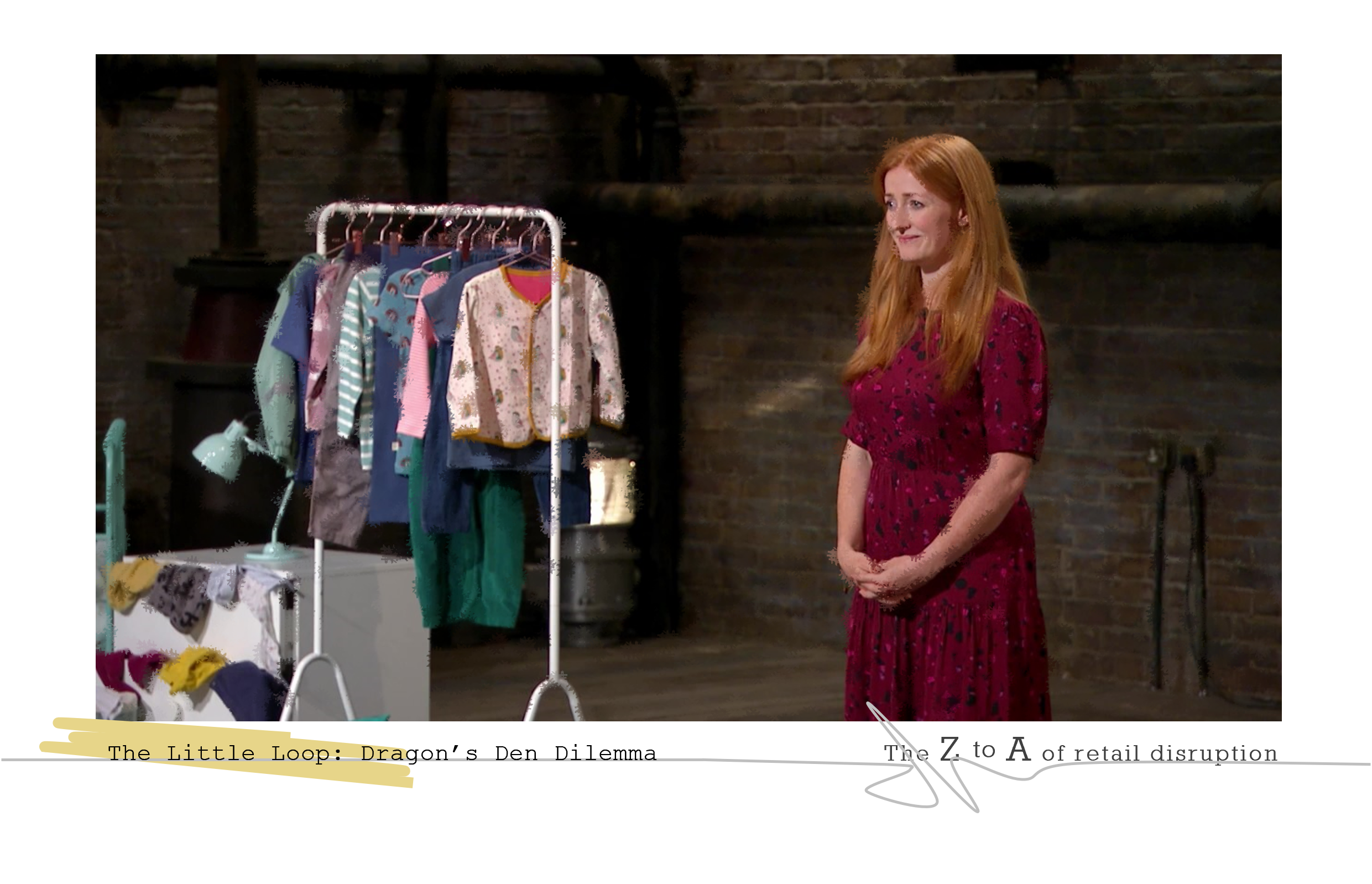What an amazing episode of the BBC’s Dragon’s Den which saw a children’s clothing rental start-up split the opinions and sentiments of the five resident dragons straight down the middle.
Charlotte Morley, founder and ceo of shared children’s wardrobe, The Little Loop, entered the Den and came away with investments from two Dragons and twice the amount she had pitched for. This has not happened before.
And we saw in 10 minutes three dragons absolutely believe in the brand, its sustainable values and the market for second-hand rental clothing. Two put their money where their mouths were, because they see the absolute commercial opportunity.
We also saw one dragon apparently dismissing the rental market’s potential as almost insignificant against the success of fast fashion, and another perceptibly eyeing the volume mass market opportunities of bringing the brand in partnership with the likes of H&M and Zara.
The pivotal point for fashion
We had in one room the current pivotal discussion around fashion and clothing retail personified by both the appetite & the disregard for clothing rental and a wider circular approach.
It would perhaps be too blunt to say the differences in sentiment were driven by age and gender, by the desire to make profit, over the need to realise value. You can ponder those. But I would take it as enormous encouragement for sustainable retail businesses that investment and enthusiasm is out there for a better way to make & buy clothes.
Don’t forget to check out The Little Loop and the criteria for the brands it sells – sustainable materials, made to last and fair pay for employees. But also take time to contemplate if you had been one of the five dragons, which side of the ethical, sustainable and commercial fence you would have been sitting.
Dilemma or no-brainer?
Lifecycles with the customer
The retail industry’s awareness and considerations about the product lifecycle must now be extended forwards to the customer purchase, their relationship with the product, and its disposal. The retail lifecycle must evolve into the product lifecycle.
Changes in retailer mentality
The solution is to make more use, and more uses, of what the customer buys. To turn away from the throwaway, to embrace and enjoy possessions. The terminology needs to move on from possessions to investments, squeezing every hour of use, enjoyment, and value from them.
Rental is now a life choice, led by technology. We no longer possess physical music but download rental versions. What we buy from apple we rent for life. We rent other people’s homes for holidays, rent other people’s cars for convenience, we can now rent furniture for our rented homes, rent clothes for occasions.
The motives are flexibility of lifestyle, the ability to change without financial commitment, convenience on every occasion, and the opportunity to use in volume, just not the same things by the same person. Our experience of variety is greater, but our possession of volume is much less.

Sustainability ‘lock-in.’
Retailers must encourage all customers to become an intrinsic part of their closed-loop cycles. Retailers and customers must collaborate to stimulate the beginning of one buying and merchandising cycle, initiated by the re-usable assets of the previous.
Sustainability ‘lock-in’ not price & availability ‘lock-in’ are becoming the new incentives to customer loyalty.
Every part of a retail business will be under scrutiny. The deepest of retail relationships must now involve customers, colleagues, suppliers, and shareholders, demanding to know a retailer’s conscience, ethical values, and sustainable reality.
